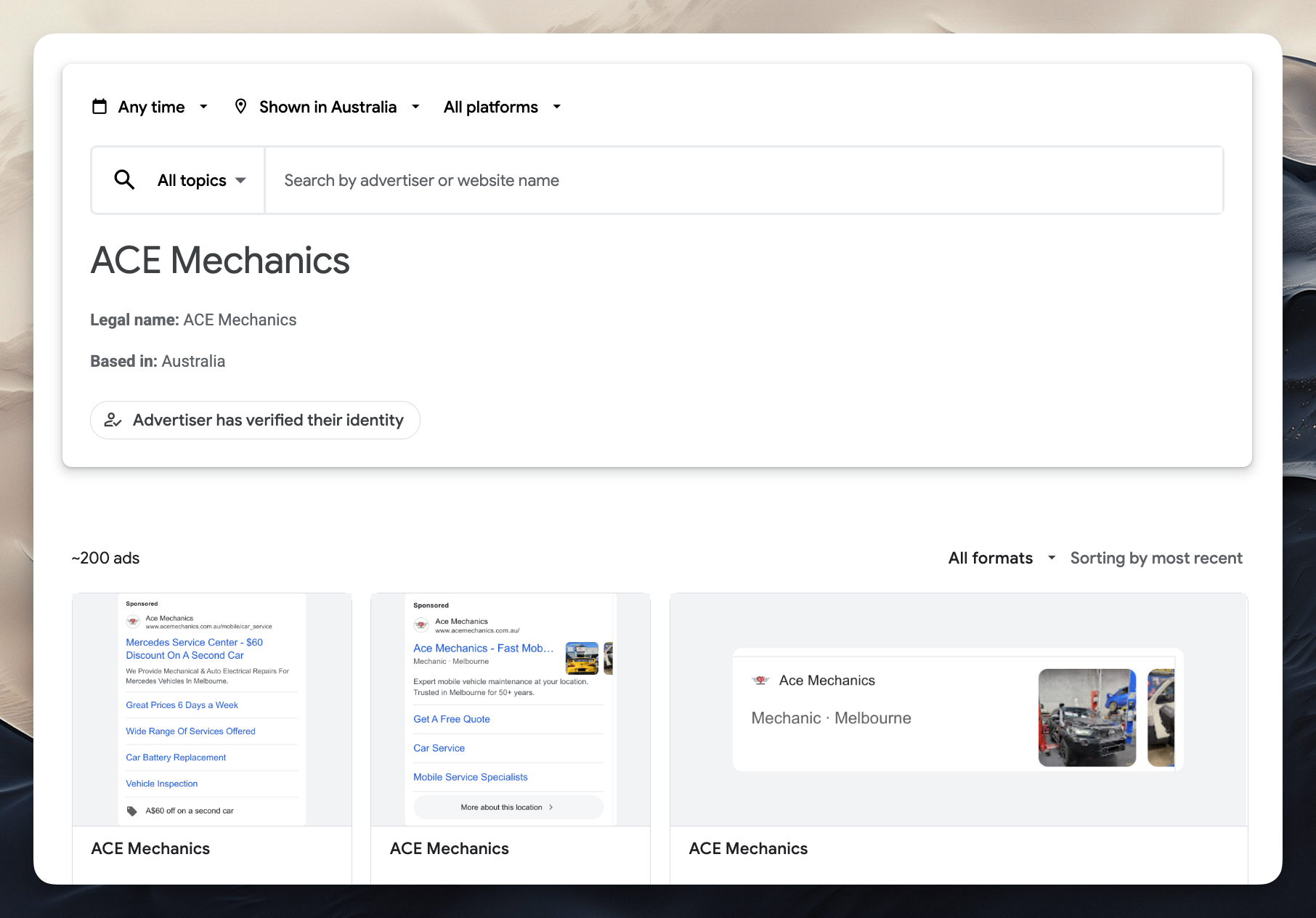By Shash7. Posted under guides Posted on 22nd Jul, 2025 - Updated on 22nd Jul, 2025
Spy on Competitors' Google Ads and gain an unfair advantage!
Competitor ad spying on Google ads platform has recently been on a uptick. This is largely due to an uptick of 3rd party tools around this area + more SEO niches becoming highly competitive.
In this article I'll break down how to effectively do competitor research in a way that it affects your bottom line.
Why researching competitors’ Google Ads matters
First of all, why even do comp research in the first place?
Stay ahead by learning from others Seeing what ads they use, which keywords they bid on, and how often they appear helps you learn faster than trial and error.
Save your budget Instead of testing blindly, you can focus on proven keywords and copy that already work in your niche.
Spot gaps and opportunities If competitors are missing a keyword or using weaker offers, that’s your chance to strike.
Benchmark performance Google’s Auction Insights shows if they’re beating you in impression share or ad position, which tells you where to improve.
Example: While running ads for a local florist, I noticed a rival using “same‑day flowers” as a keyword and dominating top positions. Bidding on that phrase and crafting a catchy “Same-day bloom guarantee” offer helped me capture more clicks.
How to do competitor research
A. Manual SERP checks
Use incognito mode and search your target keywords.
Note which competitors appear in top and bottom paid spots.
Copy their headlines, CTAs, and ad extensions (sitelinks, promotions).
Check their landing pages—what offers do they use?
B. Google native tools
Ad Preview & Diagnosis: See what ads show in specific regions and devices.
Auction Insights: Track competitors’ impression share, position over time, overlap rate, and outranking share.
Transparency Center: Look up active ads by competitor domain and see what messaging they currently run. You can use Google's own transparency tool or other 3rd party tools.

On a side note, I absolutely hate how I cannot do freeform search inside the Google transparency center.
C. Third-party tools
These tools let you uncover:
-
Which keywords they bid on
-
Estimated CPC and budget
-
Ad copy trends
-
Most used landing pages and offers
D. Build your own monitor
For advanced users, you can use Google Ads API, web scraping, or APIs like Oxylabs to gather ad data at scale - especially useful if you monitor dozens of competitors.
Bonus tips
Track metrics that matter Focus on impression share, overlap rate, position above, and share of voice—for example, Auction Insights metrics can guide your bid strategy.
Don’t just copy, adapt Match competitors’ USP or angle, but phrase it in your voice. If they offer “free shipping,” test “free same-day delivery” or a bundled discount.
Monitor frequently Competitors shift ads often. Weekly check-ins help you spot new promotions or creative changes quickly.
Spy on display and shopping ads too In addition to search ads, study their product feed, images, shopping ad placements, and price offers.
Use geo and device filters With Google’s tools or third-party dashboards, check how your competitors target mobile vs. desktop or specific locations - this may reveal untapped audiences/niches.
Conclusion
Researching competitor Google Ads gives you clarity, saves time, and sharpens your edge.
By combining manual checks, Google’s own tools, and specialized platforms, you can reverse-engineer winning strategies and uncover hidden opportunities.
Just remember: think of it as a smarter starting point - not a playbook to copy. Use the insights to craft your own compelling message and stand out.
PS, if you're looking for a competitor research guide for the Facebook ad library, we have a massive one with all tips & tricks included.
Save Ads for eternity
The easiest way to find & save winning Ads
Get started today and see how easy it is to save Ads.












































